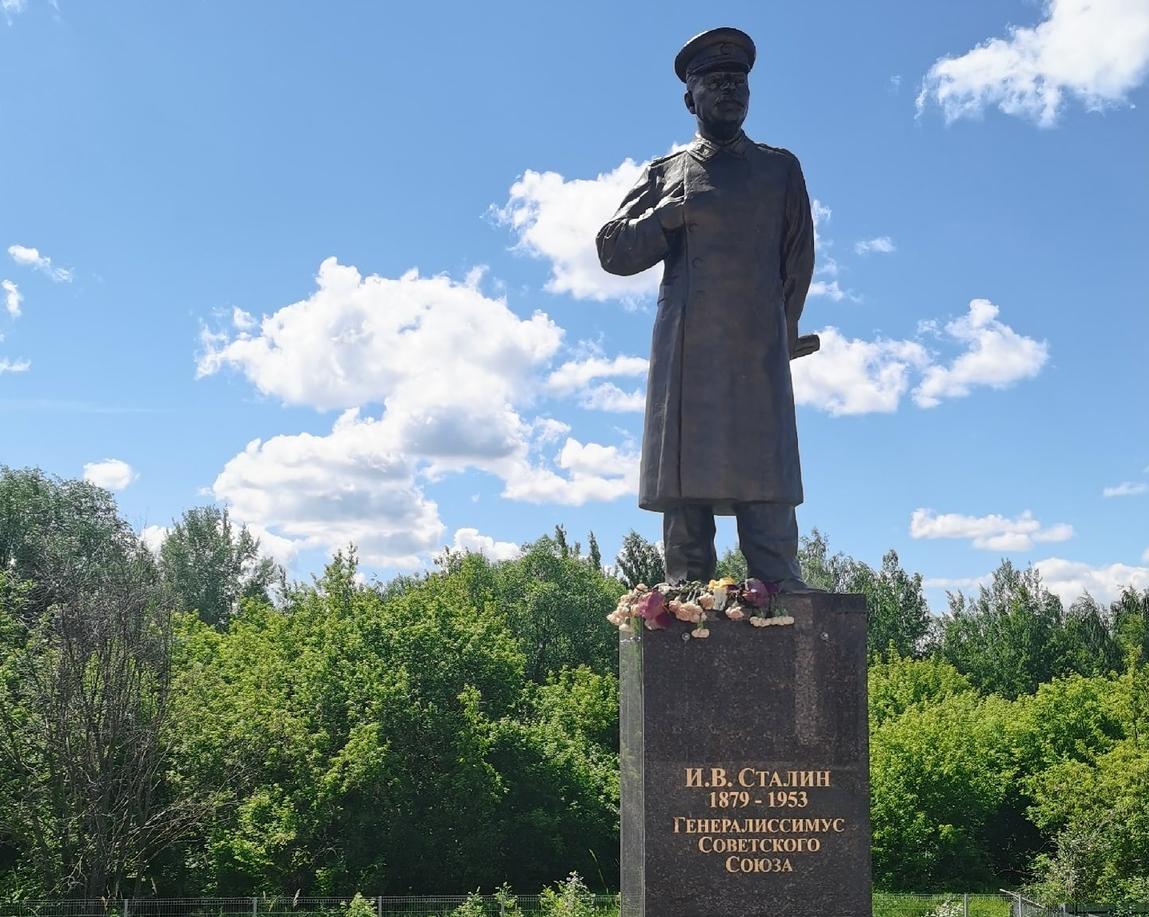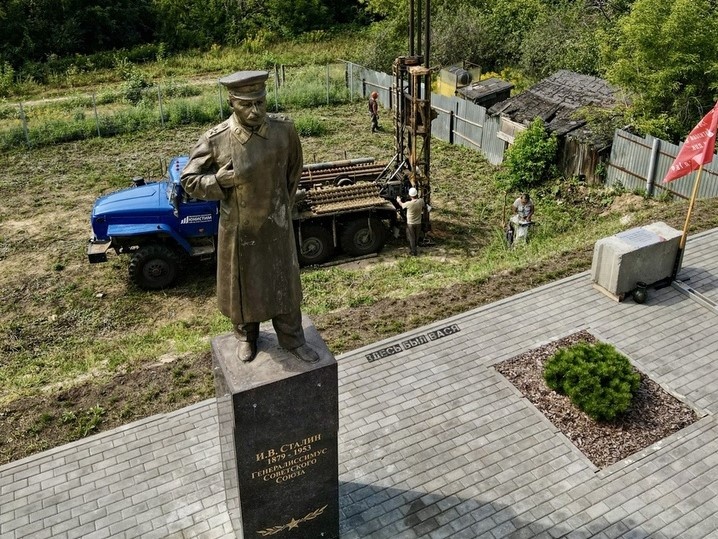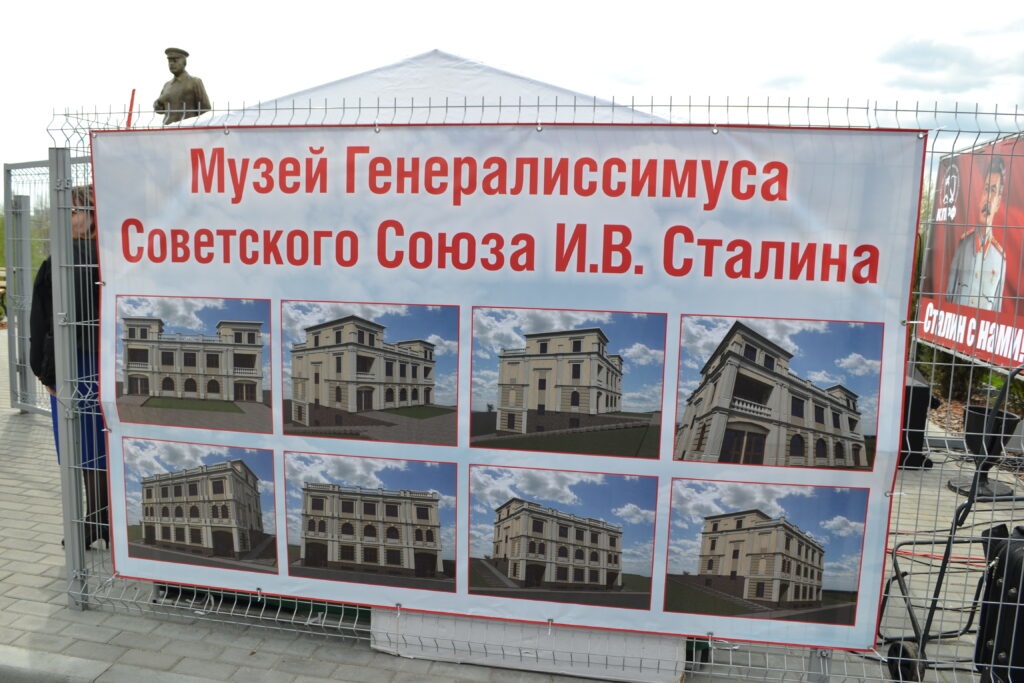BOOK REVIEW: “STALIN” BY DOMENICO LOSURDO
Posted by Roger Keeran and Joseph Jamison | Oct 30, 2023 | Featured Stories | 1
REVIEWED BY ROGER KEERAN AND JOSEPH JAMISON
October 27, 2023
 Stalin: History and Critique of a Black Legend by Domenico Losurdo, translated and with a foreword by Henry Hakamaki and Salvatore Engel-Di Mauro. United States and United Kingdom: Iskra Books, 2023. 369 Pp. $15.34.
Stalin: History and Critique of a Black Legend by Domenico Losurdo, translated and with a foreword by Henry Hakamaki and Salvatore Engel-Di Mauro. United States and United Kingdom: Iskra Books, 2023. 369 Pp. $15.34.
In December 1953, Ernesto Che Guevara, a 25-year-old recent graduate of medical school was traveling through Latin America. In Costa Rica he wrote to his aunt: “In El Paso, I had the opportunity to pass through the realms of United Fruit [Company], which once again convinced me of how terrible these capitalist octopuses are. I swore before a picture of the old and lately lamented companero, Stalin, not to rest until I see these capitalist octopuses annihilated.” This incident reminds us that for revolutionaries at this time, Stalin represented the leader of the first socialist state, a hero and an inspiration.
The reigning image of Stalin today is far removed from that of Guevara’s hero. Rather it the image of a paranoid, power-hungry, ignorant, ruthless and bloodthirsty tyrant. In Stalin: History and Critique of a Black Legend, Domenico Losurdo examines the major writings on Stalin to explain the development of this legend and to argue the legend rests on unsubstantiated allegations, a neglect of well-established facts and testimony, the willful omission of historical context, and the reliance on preposterous analogies, such as the equation of Stalin and Hitler. Losurdo’s discourse evokes awe and outrage at the spectacle of the clever and brazen ways that western intellectuals have crafted a false image of Stalin while wallowing in their own self-righteousness and in the adulation of the powers that be.
Losurdo was a Marxist professor of philosophy and history at the University of Urbino and author of over 50 books, only several of which are available in English. He died of brain cancer in 2018 at the age of 76.
Losurdo shows that the creation of the black legend began with Leon Trotsky and his followers in the 1930s, and was furthered by such Cold War ideologues as the philosopher Hanna Arendt and the historian Robert Conquest. The real turning point in the creation and spread of the black legend was the so-called secret speech by Soviet leader Nikita Khrushchev to the XXth Congress of the Soviet Communist Party in 1956. This speech crystalized many of the elements of the black legend: that Stalin had created a cult of personality, that Lenin had warned the party against Stalin, that Stalin practiced mass repression, that he executed his rivals, that he may have been responsible for the murder of Leningrad Party leader Sergei Kirov, that he weakened the army by executing military commanders, that he was depressed and passive at the onset of the German invasion, and that he was a poor military commander.
What made Khrushchev’s accusations so potent was that they were made not by a renegade from the revolution like Leon Trotsky nor by a bourgeois philosopher like Arendt nor by an ex-British intelligence officer like Conquest, but by a former comrade in arms of Stalin, and the leader of the Soviet Union and the international Communist movement. Khrushchev’s so-called revelations were not only gleefully embraced by the capitalist world they also were accepted, with the notable exception of the Chinese, by most communist parties. In this way, the black legend became the reigning paradigm in the West a historical axiom that foreclosed further examination.
Losurdo’s book is a tour de force whose analysis relies on 346 books including works originally published in Russian, English, German, and French, as well as Italian. Losurdo examines and disputes nearly every aspect of the black legend. A couple of examples of his argument will have to suffice.
In marshalling evidence to counter the dominant anti-Stalin narrative Losurdo’s method relies on the testimony of political figures as well as historians who would have no conceivable motive to present Stalin in a favorable light. Losurdo points out that in the 1930s the exiled Trotsky, leader of the anti-Stalin opposition, was openly calling for overthrow of the Soviet government by force. Losurdo cites Trotskyist author W. S. Rogowin. “With great intellectual honesty and taking advantage of the new, rich documentary material available thanks to the opening of the Russian archives” Rogowin wrote, the ‘Moscow trials were not an unmotivated and cold-blooded crime but Stalin’s reaction in the course of an acute political struggle.’ ” Losurdo shows a “fifth column,” working with outside forces, existed in the Soviet Russia of the 1930s. The Goebbels Diaries disclosed that Hitler’s secret services had three clandestine radio transmitters broadcasting into Russia. Any government would regard these facts as a threat to national security.
Critics of Stalin often cite the sacking and execution of Marshal Tukhachevsky in 1937 as an example of Stalin’s bloodthirsty lust for power. Marshal Tukhachevsky, whom Stalin had made marshal a year before, was indicted, tried, and executed for treason along with other leading members of the Red Army. Losurdo states the affair “must be understood in the context of the civil war within the new ruling group that had emerged from the collapse of the ancien regime.” This context involved of “mutual accusations of treason and collusion and with the imperialist enemy” as well as “the real activity of secret services in recruiting agents and in deception.”
Moreover, the Tukhachevsky affair had another backdrop. Lenin had expressed concern that the revolution faced a “Bonapartist danger,” i.e., a danger of a military takeover and the ousting of the civilian Bolshevik leadership. In 1920 during the brief Polish-Soviet war, the Red Army head, Tukhachevsky validated this worry by defying civilian approval with his desire to push on to Warsaw.
Context is everything. As war drew near circumstances became more ominous. In early 1937 Trotsky’s publications in Europe were calling for imminent army revolt against Soviet leaders. At the same time rumors were circulated in Paris by White army veterans about preparations in Moscow for a military coup. In January 1937 information reached the Czechoslovak president Edward Benes concerning secret “negotiations” between the Third Reich and the anti-Stalin clique in the USSR, involving “Marshal Tukhachevsky, Rykov and others.” Benes passed the report on to the Soviet leader. Hitler himself had observed that Stalin had good reasons to fear assassination by Tukhachevsky’s circle. In his war memoirs Churchill wrote that “Stalin was conscious of personal debt to President Benes.“ The historian Isaac Deutscher, the biographer of Trotsky, wrote that “numerous anti-Stalinist versions [of the Tukhachevsky affair] also claimed that the generals did indeed plan a coup d’état.”
Losurdo concludes that though “doubts remain,” it is “difficult to explain the whole affair with the usual deus ex machina: the dictator thirsty for power and blood and in any case ready to surround himself only with puppets ready for blind and unconditional obedience.” Indeed, Stalin replaced Tukhachevsky with generals who exhibited independent judgment and openly expressed differences with Stalin about some military matters.
Another feature of the black legend is that Stalin was an antisemite. Losurdo finds this charge absurd, particularly because Stalin denounced antisemitism “practically throughout his entire evolution.” As early as 1901 at age 22 Stalin’s writings contain denunciations of oppression of “nationalities and religious denominations.” In 1931 in a statement to the American Jewish Telegraph Agency, the Soviet leader branded “racial chauvinism” and antisemitism as a kind of “cannibalism” and a return to the “jungle.” After Hitler came to power Stalin condemned “German
fascism with its pogrom ideology, its antisemitism, its view of higher and lower races.” After the Second World War, at the Nuremberg trials, the Soviet prosecutors alone called special attention to the Nazi genocide of the Jews. In the postwar period, Stalin followed a fundamentally pro-Jewish Palestinian policy.
Losurdo notes this great irony: “The support he [Stalin] gave to the foundation and consolidation of the Jewish state is at the same time the contribution he made to the Nakba, that is to say, the national catastrophe of the Palestinian people who for decades have had to languish in refugee camps…If, for the sake of absurdity, antisemitism were to be attributed to Stalin. it would be anti-Arab antisemitism.”
Stalin’s detractors often adduce the so called “Doctors Plot” as proof of Stalin’s antisemitism. If anything, this episode demonstrates the opposite. Up to the end, Stalin entrusted his health care to many Jewish doctors, and in any case, among the doctors accused of plotting against him, only a few were Jews.
Nor does it make sense to speak of antisemitism as Soviet policy. For example, no army in the world had as many Jews in the upper echelons as the Red Army. Losurdo endorses the view of a historian who observed that in the 20th century “the USSR was the country that saved the largest number of Jews.” Moreover under Stalin, twenty years before the creation of Israel, the Soviets created a homeland for the Jews in Birobidzhan, a Jewish autonomous region in the Soviet far east.
Another crime attributed to Stalin is that he deliberately created a famine in Ukraine in 1932-1933. Robert Conquest, the British intelligence agent turned Cold War historian famously peddled this thesis. Losurdo shows that a mountain of evidence and testimony point to the absurdity of the thesis. The disruption created by forced agricultural collectivization did lead to temporary scarcity and hunger in Ukraine but not deliberate famine. After a 1934 visit, the French Prime Minister denied that there was severe and extensive of hunger in Ukraine. Visiting diplomats from Mussolini’s Italy saw a policy of “valorization of Ukrainian national characteristics.” Soviet power pursued a policy of what we would call affirmative action toward Ukraine and other non-Russian nationalities, that is promoting national leaders, language, and culture. Referring to the Ukrainians as “brothers and comrades,” Stalin declared that “it is obvious that there is a Ukrainian nation and it is the duty of Communists to develop its culture.” These facts fail to fit the image of Stalin as the author of Ukrainian genocide.
Losurdo poses the question: how could such a grotesque and caricatured portrait as the one drawn by Khrushchev rise to the dignity of a historiographical and political dogma? He argues that the French Revolution, the most radical of the great bourgeois democratic revolutions, led to a demonization of Robespierre and the French Jacobins similar to the demonization of Stalin and the Bolsheviks. In July 1794, the Jacobins were overthrown. Thereafter, the Jacobins — in particular the executed Maximilien Robespierre – were pilloried by their victorious opponents as “spreaders of darkness and ignorance” even though the Jacobins had created a compulsory public schooling system in France. Their enemies charged that the Jacobins had guillotined “tens of thousands, hundreds of thousands, some even speak of millions.” The Jacobins were said to be “drinkers of human blood,” “cannibal hordes;” they were “these frightful cannibals”, “sultans,” “satyrs,” organizers of “orgies;” they wanted to “weed out the human race.” When placed in the historical context of the reputational damage endured other revolutionaries, the treatment of Stalin becomes somewhat comprehensible.
In his challenge to the black legend, Losurdo does not stand alone. In recent years, a variety of historians have refuted many aspects of legend. These include Grover Furr, Mark Tauger, Wendy Goldman, Geoffrey Roberts, and even the mainstream historian, Stephen Kotkin. Losurdo stands apart by his comprehensive and detailed demolition of the legend.
Over many years, we have read scores of books on Stalin by writers across the political spectrum, and we submit that if one were to read just one book on Stalin, this book by Losurdo should be it.
https://mltoday.com/book-review-stalin- ... o-losurdo/










